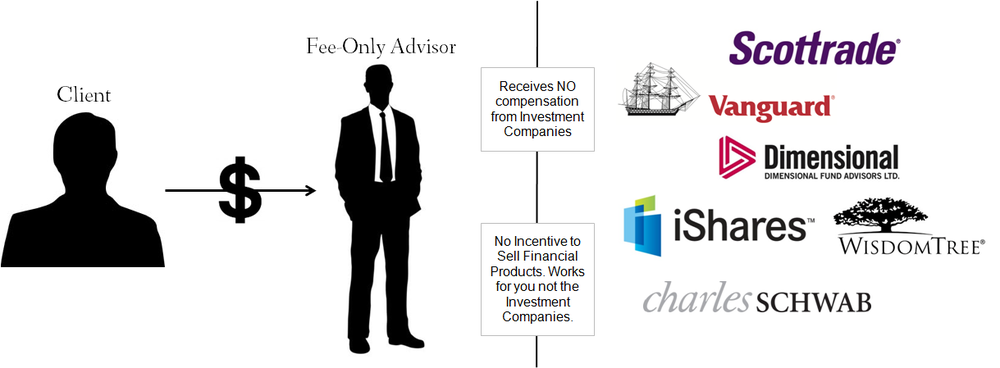The Difference Between FeeOnly and FeeBased Financial Advisors
Post on: 16 Март, 2015 No Comment

Many people feel that they could benefit from the help of a financial planner or financial advisor. However, before you decide to work with someone, its a good idea to make sure you understand how he or she is compensated. One of the most confusing things to do is figure out what it means when a financial advisor is fee-only or fee-based. In order to help sort out the situation, I asked Jeff Rose from Good Finance Cents and Soldier of Finance for a little illumination.
Fee-Only versus Fee-Based
Fee-Only Advisor
Jeff starts out by pointing out that fee-only planners are paid directly by the client, and not from the sale of any investment product. According to Jeff, there are four ways that a fee-only advisor can be paid:
- Hourly Billing: This is an hourly rate for working with you, simliar to the way a CPA bills, or an attorney would bill.
- Annual Retainer: You pay one price, and you get all the available services for a year.
- Fee for Service: Some financial planners might charge a fee for each separate service. So, you might pay a flat rate for a 401(k) review, or for a financial plan, or for some other service.
- Assets Under Management: This is a fee that is charged based on your assets. You pay a percentage of the assets the planner manages (usually 0.5% to 2.5% annually), and the amount is often just deducted from your account.

Before you you sign up, make sure you understand which type of fee you will be paying. To find a true fee-only advisor, Jeff recommends, you should look at hiring a NAPFA registered financial advisor. They have a very strict selection process in allowing advisors to be part of their association.
Fee-Based Advisor
A fee-based advisor, on the other hand, has the ability to sell an investment product or an insurance product for a commission. A fee-based advisor has the ability to do some of the above depending on whether or not they are a Certified Financial Planner but most of them do assets under management, Jeff explains.
Most fee-based advisors hold a Series 7 license and/or a life insurance license, allowing them to earn a commission. However, fee-based advisors can also operate as fee-only advisors. Essentially, they have the ability to go between the two, Jeff says. This can be confusing for a client because they may not know which hat the advisor is wearing: The fee hat or the commission hat.
Which Advisor is Better for You?
As with all things personal finance, whether you decide to go with a fee-based advisor or a fee-only advisor depends on your situation. Jeff recently allowed his Series 7 to expire, so, from that standpoint, he could be considered a fee-only planner/advisor. Recently, I gave up my Series 7 and formed my own Registered Investment Advisory firm, eliminating my ability to ever earn a commission on the sale of a security. However, he still holds to the fee-based designation he used to have. I have retained my insurance license, although I havent done any insurance business this year, Im currently leaving the possibility open.
Jeff points out that sometimes just choosing someone who is fee-only can backfire for some clients. I like the fee-based model because not every client or situation is appropriate for one or the other. Ive seen some fee-only firms that dont have an account minimum but they may charge 2.25% a year to manage an account. Is that really a good fit for someone with a small account, just getting started? Its tough to say.
Being fee-based, Jeff indicates, allows the planner the ability to be flexible and charge according to what might work best for the client and the clients situation. However, that doesnt let the planner off the hook for being up front with how he or she will charge you to manage your account. You should have an agreement, up front, about the way the advisor will be compensated for managing your account specifically.
The number one question to ask a financial advisor is exactly how they get paid, and make sure you get a clear answer, Jeff says. If they use percentages, make sure they quantify that in dollars so you really know how much you are paying.














